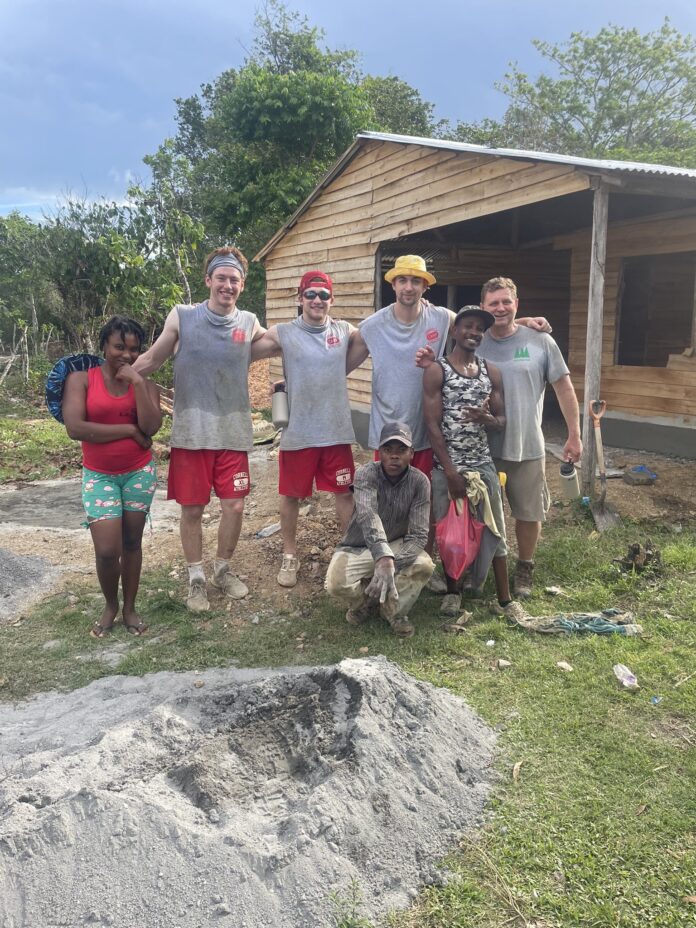Thousands of hockey players rotated through Cornell’s New York-based campus over Mike Schafer’s three decades of head coaching.
From an on/ice perspective, their legacy is long entrenched as a piece of the Big Red’s history of building successful champions. Even in this last year, raising the Whitelaw Cup for a second straight season handed the program its second consecutive postseason ECAC Hockey championship.
Yet the true lasting memory of Cornell hockey isn’t something ingrained in an on-ice shot or check for a player like Hank Kempf. It’s not a sprint in practice or a postgame film session. It might not even land in the Ivy League education and life-changing degree from one of the world’s best universities.
The lasting image, the lasting thought of a Cornell hockey player, is a second straight year as a finalist for the Hockey Humanitarian Award.
“Coach Schafer always talks about how important service is,” said Kempf after being nominated for the first time in 2024. “Playing for Cornell and being under him has really been a great learning lesson into the value of service. It’s been a big thing for me, and it’s influenced me to branch out. Being in the Cornell hockey program is such an incredible place in so many areas, but it’s developed me as a person because you get to do so much away from the rink.”

Kempf was the second member of the Cornell hockey program to be named a finalist for the award given to college hockey’s finest citizen. He is attempting to join Sam Paolini as the only Big Red players to ever win the award after Alyssa Gagliardi and Morgan Richardson became finalists during their time on Cornell’s women’s program, and his nomination is the 10th time that someone from the Ivy League and ECAC-based school appeared on the list of nominees.
Becoming the first Cornell player nominated multiple times to the award, though, is only part of the story for Kempf, who has built a sustainable model of charitable contributions to the greater Cornell and Ithaca communities. His efforts to organize “Big Red Blocks for Healing” stemmed from a tragedy in his own personal life after his mother passed away from a bout with breast cancer, and it’s gotten teammates involved by raising money based on the team’s desire to block shots during games.

The money raised went directly to Kesem, an organization that supports children affected by a cancer diagnosis to a parent by providing programs and services at no cost. In the first year, Cornell’s efforts exceeded the team’s initial expectations, and Kempf recruited Ryan Walsh and Jack O’Brien from the Cornell team to organize a second year alongside the entire coaching staff.
“A bunch of returners stayed [on campus] over the summer,” he said. “Before the [2023-2024 season], we got together and met with some staff. We all kind of decided that it would be a great thing, this year, to do a service project with the team and have it be something that speaks to the team. I was a little hesitant to do something out of the gate in honor of my mom, but after I talked to my family, we all [decided] it was something she would want me to do. From there, it was a no-brainer to do something to honor her and to do something for breast cancer.
“We really looked at something that spoke to us as a shutdown, defensive team, and we love blocking shots. Blocking shots is a thing that’s really big in our program, so it was something that we said would be cool to make [the program] performance-based specifically for using shot blocks to raise money for breast cancer.”
Kempf has also been involved with the Portal de Belen Foundation service trip that took Cornell to poor and needy areas within the Dominican Republic, and he led a service trip to Monte Plata, where the Big Red built a community service center for the area. They later provided goods, services and sports equipment to the children of the area while continuing to lift the spirits of a developing nation with a poverty rate exceeding 27 percent.
He’s additionally worked with the Racker Center, a support center for people with disabilities in the greater Ithaca, N.Y., area, and the Newfield Schools Mentor Program, which hosted children groups on campus at Cornell.




















